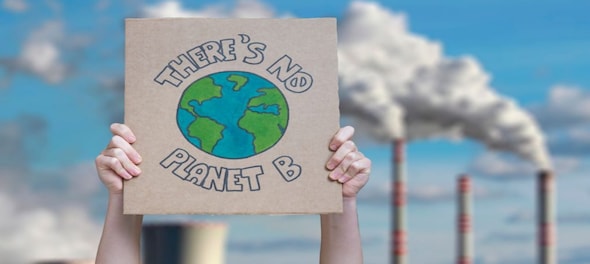
A recent analysis by UN Climate Change revealed that current national climate action plans fall short of the necessary steps to limit the global temperature rise to 1.5 degrees Celsius, as outlined in the Paris Agreement. The report urges more robust measures to redirect the trajectory of global emissions and avert the severe consequences of climate change.
The Executive Secretary of UN Climate Change, Simon Stiell, emphasised the inadequacy of current efforts, stating, "Today’s report shows that governments combined are taking baby steps to avert the climate crisis. And it shows why governments must make bold strides forward at COP28 in Dubai, to get on track."
Stiell further stressed the pivotal role of COP28 as a turning point, urging nations to not only agree on stronger climate actions but also to demonstrate how they will implement them.
The report highlights the need for a decisive global stocktake at COP28, a critical juncture for nations to accelerate their efforts and meet the goals of the Paris Agreement. The UN's Intergovernmental Panel on Climate Change emphasises the necessity of cutting greenhouse gas emissions by 43% by 2030 to limit temperature rise to 1.5 degrees Celsius. The report indicates that while emissions are no longer increasing after 2030, they still do not exhibit the rapid downward trend required by scientific recommendations.
"If the latest available NDCs are implemented, current commitments will increase emissions by about 8.8%, compared to 2010 levels," warns the report. This marginal improvement over last year's assessment underscores the pressing need for more ambitious actions. By 2030, emissions are projected to be only 2% below 2019 levels, emphasising the need for accelerated efforts to achieve a peak in global emissions before 2030.
The report outlines key factors for success, stating that the conditional elements of the NDCs depend on enhanced financial resources, technology transfer, technical cooperation, and capacity-building support, along with market-based mechanisms.
COP28 President Designate, Dr Sultan Al Jaber, underscores the historical importance of COP28, stating, "COP28 must be a historic turning point in this critical decade for Parties to seize the moment of the Global Stocktake to commit to raise their ambition and to unite, act and deliver outcomes that keep 1.5C within reach while leaving no one behind."
The report also addresses long-term low-emission development strategies, indicating that if fully implemented, these strategies could result in a 63% reduction in greenhouse gas emissions by 2050 compared to 2019 levels. However, uncertainties and delays in net-zero targets remain a cause for concern.
The UN Climate Change Conference (COP28) will take place in Dubai, United Arab Emirates, from November 30 to December 12 this year.
Check out our in-depth Market Coverage, Business News & get real-time Stock Market Updates on CNBC-TV18. Also, Watch our channels CNBC-TV18, CNBC Awaaz and CNBC Bajar Live on-the-go!


2024 Lok Sabha Elections | What does a low voter turnout indicate for NDA and I.N.D.I.A Bloc
Apr 29, 2024 5:48 AM
'Borrowed' leaders: Congress hits out at AAP for not fielding their own candidates in Punjab
Apr 28, 2024 9:53 PM
EC asks AAP to modify election campaign song and Kejriwal's party is miffed
Apr 28, 2024 9:25 PM

